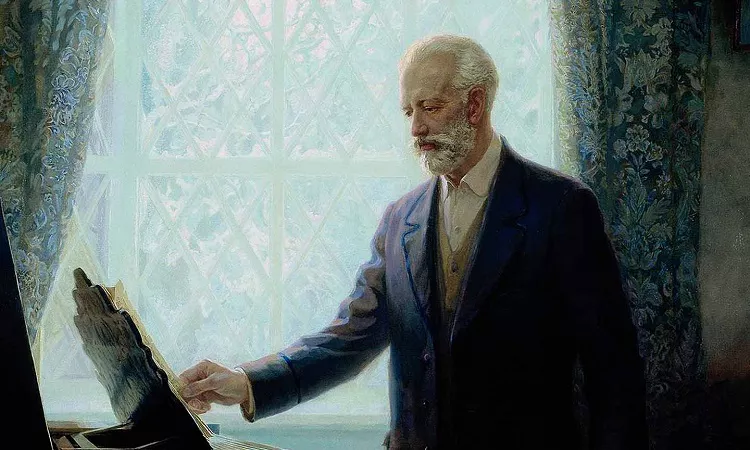Pyotr Ilyich Tchaikovsky, a name synonymous with classical music, stands as one of the most influential and celebrated composers in the history of this rich and timeless genre. With a career spanning the 19th century, Tchaikovsky‘s contributions to classical music continue to captivate audiences around the world.
The Early Years: A Prelude to Greatness in Classical Music
Tchaikovsky’s journey into classical music began in the small Russian town of Votkinsk in 1840. His family provided him with a strong foundation in the arts, and it was evident from an early age that he possessed remarkable musical talent. He received a thorough education in classical music, studying at the Imperial School of Jurisprudence in Saint Petersburg. Although his formal education was not in music, his passion for classical music remained unwavering.
Tchaikovsky’s Entry into the World of Classical Music
In 1863, Tchaikovsky began his formal music education at the Saint Petersburg Conservatory, a pivotal moment in his career and classical music history. There, he was mentored by renowned composers such as Anton Rubinstein. His dedication and commitment to classical music composition led to the creation of his first symphony, “Winter Daydreams,” which premiered in 1866. This composition marked the beginning of a prolific career that would forever alter the landscape of classical music.
Symphonies and Classical Music Innovation
Tchaikovsky’s symphonies hold a prominent place in the classical music canon. His ability to blend traditional forms with innovative melodies and harmonies set him apart in the world of classical music composition. The “Pathétique Symphony,” his final work, is a testament to his mastery of the classical form. Premiering in 1893, this symphony showcased Tchaikovsky’s ability to evoke profound emotions within the realm of classical music, solidifying his status as a trailblazer.
Ballet and Classical Music: Tchaikovsky’s Unforgettable Collaboration
Tchaikovsky’s contribution to classical music extends beyond symphonies. His collaboration with choreographer Marius Petipa resulted in some of the most iconic ballets in classical music history. “Swan Lake,” “The Nutcracker,” and “Sleeping Beauty” are timeless classics, their enchanting melodies and captivating narratives weaving seamlessly into the fabric of classical music.
Tchaikovsky’s Influence on Russian Classical Music
While Tchaikovsky’s music is celebrated worldwide, his impact on Russian classical music is particularly profound. His compositions often drew inspiration from Russian folk music, infusing classical music with a distinct national flavor. This fusion of classical and folk elements became a hallmark of Russian classical music, influencing composers who followed in his footsteps.
Challenges and Triumphs in the World of Classical Music
Tchaikovsky’s journey in classical music was not without its challenges. His personal life was marked by inner turmoil and struggles with his identity. Yet, these experiences fueled his creative genius, giving birth to some of the most emotionally charged compositions in classical music history. Pieces like the “Symphony No. 5” and the “Piano Concerto No. 1” reflect the depth of his emotions, resonating with classical music enthusiasts to this day.
Tchaikovsky’s Impact on Classical Music Education
Beyond his compositions, Tchaikovsky made significant contributions to classical music education. He served as a professor at the Moscow Conservatory, where he influenced a new generation of composers. His dedication to nurturing talent ensured a lasting legacy in the realm of classical music education, shaping the future of the art form.
Tchaikovsky’s Enduring Popularity in Classical Music
Tchaikovsky’s music transcends time and borders, remaining a vital part of the classical music repertoire. His compositions continue to grace the programs of leading symphony orchestras and ballet companies worldwide. The universal appeal of his work in classical music is a testament to its timeless beauty and emotional depth.
Legacy and Influence in Contemporary Classical Music
Tchaikovsky’s influence on classical music extends far beyond his own era. His compositions have inspired countless contemporary composers, and his impact on film music, in particular, cannot be overstated. Elements of Tchaikovsky’s style can be heard in the works of composers who have shaped the classical music landscape of the 20th and 21st centuries.
Celebrating Tchaikovsky in Modern Classical Music
In today’s classical music scene, Tchaikovsky’s compositions are not mere relics of the past but living, breathing works that continue to inspire and connect with audiences. Orchestras and musicians strive to bring freshness and innovation to his timeless pieces, ensuring that classical music enthusiasts experience them anew.
The Eternal Resonance of Tchaikovsky in Classical Music
Tchaikovsky’s status in classical music remains unassailable. His compositions, rich in melody and emotional depth, continue to be a source of inspiration and wonder. Whether it’s the haunting beauty of “Swan Lake” or the triumphant notes of the “1812 Overture,” Tchaikovsky’s classical music continues to captivate and enchant listeners of all generations.
Conclusion
In the annals of classical music history, few names shine as brightly as that of Pyotr Ilyich Tchaikovsky. His contributions to the genre are nothing short of monumental, and his legacy endures through the ages. Tchaikovsky’s ability to infuse classical music with emotion, innovation, and national identity solidifies his status as a true icon. As we continue to explore the vast landscape of classical music, let us remember and celebrate the enduring genius of Tchaikovsky, whose melodies will echo through the corridors of classical music for generations to come.

